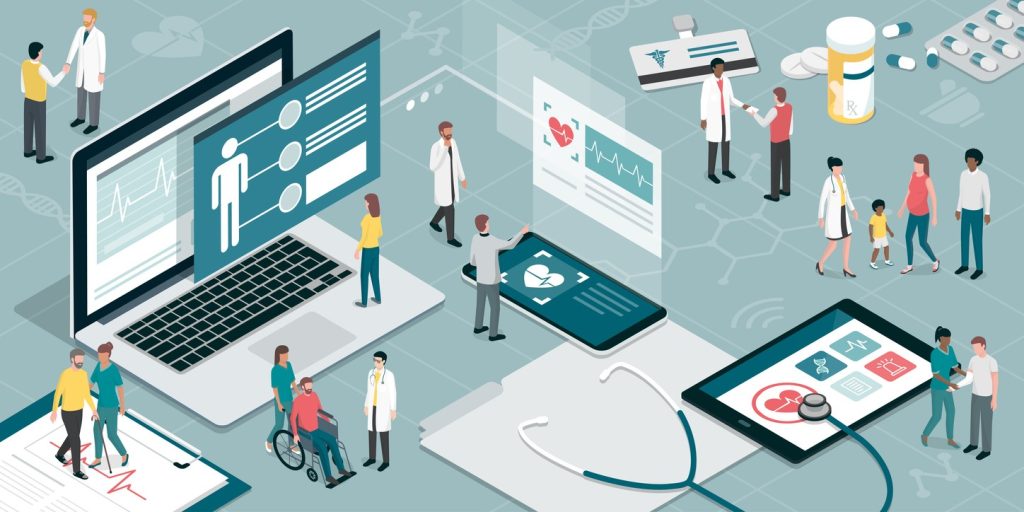
ICD-10 FAQs
Lorem ipsum dolor sit amet, consectetur adipiscing elit. Ut elit tellus, luctus nec ullamcorper mattis, pulvinar dapibus leo.
ICD-10 FAQs
Our team of industry experts possess a deep understanding of healthcare IT as well as its practical application in physician offices. We are dedicated to providing our customers with expert support throughout the transition process.
See Our Complete List of 2020 ICD-10-CM Codes
What Is ICD-10?
The International Classification of Diseases, Clinical Modification or ICD-10-CM code set is used to classify and report diseases in medical records and on claims. The US Department of Health and Human Services (HHS) mandated the replacement of the ICD-9-CM code sets used to report healthcare diagnoses with ICD-10 codes.
The transition will require a significant effort to implement.
What Is The ICD-10 Deadline?
October 1, 2015
What Is The difference Between ICD-9 and ICD-10?
ICD-10 introduces over 55,000 new diagnosis codes to clinicians. It increases the number of codes from 14,000 to roughly 69,000. The increase in codes will allow practices to code to higher levels of specificity.
What Is The Overall Purpose of ICD-10?
ICD-10 diagnosis codes provide much greater clinical detail than it’s predecessor. The U.S. government hopes to improve health outcomes by providing healthcare professionals with a more specific and precise system for clinical documentation.
Their hope is that this will result in more efficient and accurate payer reimbursements for medical services rendered.
In addition, ICD-10 is designed to improve statistics that are used to determine healthcare costs.
What Is Required For Ambulatory Providers?
Ambulatory providers will use ICD-10-CM, while hospitals will use both the ICD-10-CM and ICD-10-PCS code sets.
Do We Need To Test & If So How?
Internally, work with your vendors to gain experience with their ICD-10 functionality. Find out what their testing process will involve and when testing will be available.
Practices will need to conduct ICD-10 testing with all external organizations with whom they exchange data. Some vendors (such as clearinghouses) may perform testing on your behalf. Check with your vendors on their plan.
- Check with your payers to see if they are providing practices with services and resources during the transition.
- If you work directly with clearinghouses, check with them about their testing plans and timeframes. If your clearinghouse is integrated with your practice management system, your vendor may handle this.
- Outsourced billing partners will need to test workflows with any outsourced coding, billing, or revenue cycle management partners to ensure that there is no disruption to operations.
Free RCM Consultation
The healthcare revenue cycle process is complex and stressful.
However, our revenue cycle consultants bring expertise in nearly 30 specialties and knowledge on the latest regulatory developments, coding requirements, reimbursement rules and standards. We would love to help answer any of your toughest RCM questions and concerns!
Schedule your free consult below- we look forward to speaking to you!
What Steps Should Practices Take For Training Their Staff?
Coders and billers need training to learn how to code correctly with ICD-10 and to understand changes to payers’ documentation requirements. Staff should crosswalk frequently used ICD-9 codes to ICD-10 codes to create cheat sheets in advance of the transition.
This will help them get familiar with both the mapping process and the ICD-10 codes they’ll be using most often. Mapping, however, only serves as a guide. Over 70% of the coding translations using General Equivalence Mappings (GEMs) need to be adjusted for accuracy.
Coders will need sufficient documentation and training to enable them to identify more precise codes.
Won’t ICD-10 Just Get Delayed Again?
While it is possible that ICD-10 might get delayed again in 2015, that doesn’t really seem to be the case so far. In 2014, multiple initiatives had been introduced early in the year to block the implementation of ICD-10.
In 2015, very few proposals have been introduced. It certainly does seem to be looking like ICD-10 could really happen this year. Either way, it is still wise to be prepared.
Questions To Ask Your Medical Software Vendor About ICD-10
- What’s the plan? If they don’t have one, now is the time to know. Implementing ICD-10 will absolutely require new development that can take months to design, test, and integrate. It is crucial that your software be ready by October 1, 2015.
- Who are you testing with? Knowing that your software will be testing at all is a huge part of knowing that they will be ready. At a minimum, they should be testing with any clearinghouses that they work with.
- Will your system allow for dual coding? – Some payers are not going to convert to ICD-10. Your software company should know which payers will not convert, how they will be identified, and allow for both ICD9 and ICD-10 coding. Even if your practice doesn’t work with those kinds of payers, will the software allow for coding of ICD-9 codes for dates of service prior to October 1, 2015?
- Will this cost me anything and if so, how much? Some software vendors are requiring that their users “upgrade” to a new ICD-10 version and are charging an additional cost.
- How will I be supported during this transition? Some software vendors are charging customers for additional training and support. Now is a good time to get specifics on any training opportunities that are provided and how much it will cost.
What Should I Do Right Now To Prepare For ICD-10?
- Talk to your software vendor. Ask them the above questions.
- Identify who in your practice needs training. See our ICD-10 Training Resources Section below.
- Audit your charts. Since the biggest challenge with ICD-10 will be adding more detail, make sure that the detail needed is available now. If not, now is a good time to start working with providers to start including more details now.
- Calculate the costs of implementing ICD-10 and start saving for a rainy day now. ICD-10 training costs and possible delays in reimbursement, may result in a cash flow issue. It’s a good idea to have a cash reserve if needed.
- Understand that for a while, processes will slow down. According to the AAPC, when Canada transitioned to ICD-10 in 2000, the average coding time per claim increased from 15 minutes to 33 minutes. The turnaround time for a claim to process went from an average of 69 days to an average of 139 days.
- Be aware of everyone in your practice who has any kind of contact with ICD-9/ICD-10 codes. This includes medical assistants who complete lab forms, pre-cert assistants who are going to be calling in codes to payers, nurses who assist in completing charts, etc.
- Generate a list of the ICD-9 codes you currently use and crosswalk them to ICD-10 codes. This will help you to focus on the codes that are relevant to your specialty and practice.
- Create a team that will be responsible for implementing ICD-10 in your practice. The head of your team should continue to review the practice’s ICD-10 compliance even after October 2015 to verify that there are no coding errors that could be causing the practice to lose money. Or worse, to fail an audit.
I’m A Doctor. What Does My Coder Need From Me?
Your coder needs details. Here are some questions doctors should ask themselves when charting:
- Acute or Chronic?
- Which side, left or right?
- Where/how/what was the patient doing when/ it happened?
- What caused it?
- What makes it better?
- Is it malignant or benign?
- Open or closed?
- Initial/Subsequent/Sequela (Late Effect)?
What Is Azalea Health’s Role In Implementing ICD-10 In My Practice?
Azalea Health will provide many helpful tools that will enable a practice to implement ICD-10. As a software vendor, Azalea will provide the following:
- ICD-10 search tool loaded with all ICD-10 codes available including descriptions of the code, inclusive, exclusive information, and code first details.
- ICD-9 to ICD-10 crosswalk- Input an ICD-9 code and receive a report of the appropriate corresponding ICD-10 codes.
- Ability to use both ICD-9 or ICD-10 code sets on charts and encounters.
- Diagnosis Code specific reports
ICD-10 Resources
The transition to ICD-10, with its expanded code sets, will have a significant impact on physician practices, payers and vendors. These coding changes will affect medical coding operations, software systems, reporting, administration, registration, and more. It is crucial that you stay on track with your transition so you don’t experience backlogs, denials, and impacts on revenue.
The most important step you can take to prepare for ICD-10 is using an ICD-10-ready solution. The Azalea Health team is focused on having its solutions ready to help you succeed in your transition.
Is your team ready for ICD-10? Take this online quiz to test your ICD-10 knowledge.
Azalea Health ICD-10 Resources & Downloads
- Test your ICD-10 knowledge – Use this online quiz to test your team’s readiness
- Azalea Health ICD-10 Crosswalk -ICD-9 to ICD-10 crosswalk codes for specialty practices
Industry Resources
- Centers for Medicare & Medicaid Services ICD-10 Resource Page (CMS)
- World Health Organization’s ICD-10 Online Code Directory
- HomeTown Health– Provides an ICD-10 training program designed for physician offices
Additional Training Resources
- For medical coders
- For physicians
- For practice managers
- – Provides an ICD-10 training program designed for physician offices
ICD-10 News
- ICD-10 Watch – “There’s Another Bill Targeting ICD-10 Implementation”: http://icd10watch.com/blog/theres-another-bill-targeting-icd-10-implementation
- AAPC ICD-10-CM Coding Tips: “Rules of the ICD-10 Road”: http://news.aapc.com/rules-of-the-icd-10-road/
- Healthcare IT News: “What’s Inside the New Bill to Kill ICD-10?: http://www.healthcareitnews.com/news/icd-10-whats-new-cutting-costly-codes-act
Azalea Health Is Prepared for ICD-10!
Azalea Health’s products are ready for this stage of ICD-10 preparedness. Our team of experts are also ready to answer your questions and help you to prepare for the transition.
- ICD-10 functionality is included free of charge throughout the system.
- Our built-in ICD-10 search tool with integrated ICD-9 to ICD-10 crosswalk and clinical vocabulary will help your team with ICD-10 code selection. Find ICD-10 codes by ICD-9 code or key word search.
- Azalea Health provides ICD-10 educational resources to help with your transition (see list of resources below) – know the steps you need to take to prepare your practice for the transition.
- Azalea Health customers will receive alerts as ICD-10 product updates are released. Because of the cloud-based nature of our software, these updates will be delivered automatically.
- Azalea Health software allows for dual coding. Submit ICD-9 diagnosis codes to payers that are exempt from the ICD-10 mandate.
- Azalea Health software is developed to include updates to EDI file and HL7 formats allow for delivery and receipt of ICD-10 code content.
Additional Resources

What Do I Need To Know About The MIPS Cost Performance Category?

What Is PCMH?

